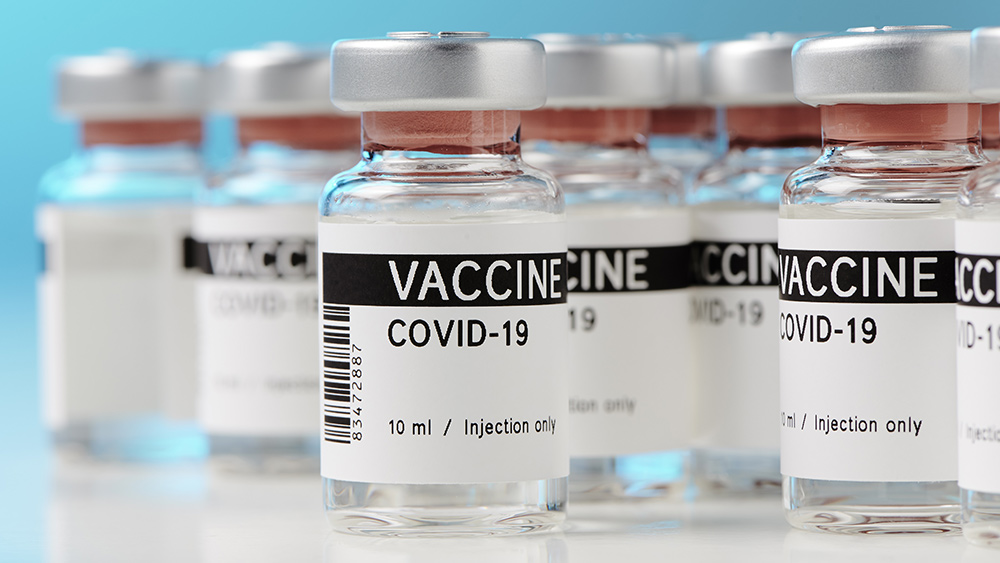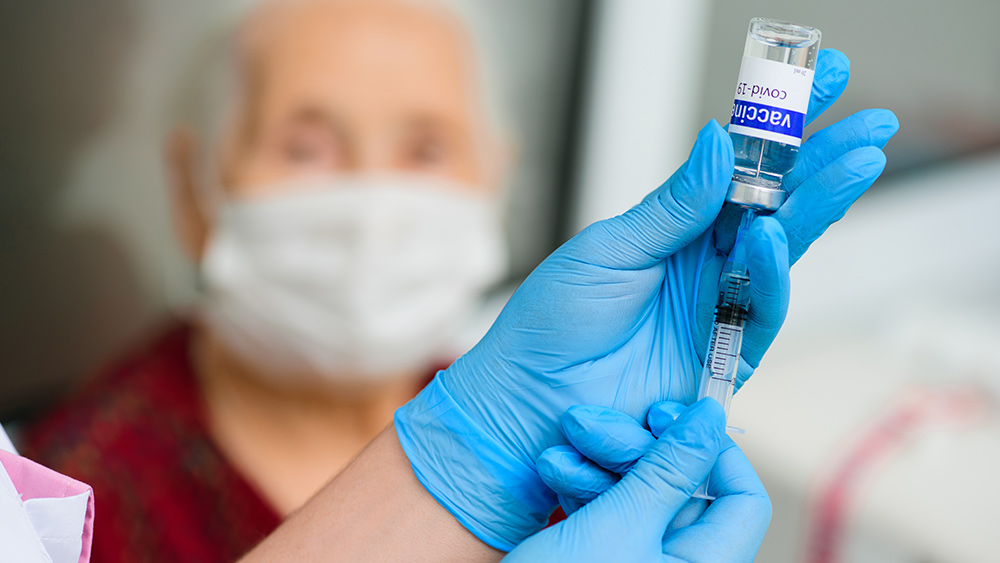Vaccinated man who received Moderna booster shot reports MORE SEVERE side effects
06/30/2021 / By Ramon Tomey

Many Americans received the two-dose mRNA vaccines against the Wuhan coronavirus (COVID-19). These vaccines from Pfizer/BioNTech and Moderna promised full protection with just two doses. But Moderna has recently begun testing booster shots for fully vaccinated people. One volunteer – who was fully vaccinated with the Pfizer/BioNTech vaccine – said he experienced more severe side effects after receiving the booster shot.
Business Insider reported that virologist Dr. Joseph Hyser was among the volunteers who received an experimental third dose booster shot. The Baylor College of Medicine assistant professor said he has been fully vaccinated with the Pfizer/BioNTech vaccine since January of this year. Hyser added that he is not really worried about his post-vaccination immunity diminishing.
He nevertheless signed up for a study involving a COVID-19 booster shot from Moderna after he learned of it in an email. The study aimed to assess the effectiveness of the Moderna booster dose in people who received the mRNA vaccines and Johnson & Johnson’s one-dose adenovirus vector vaccine. It received funding from the National Institutes of Health.
Hyser said he experienced “similar types of side effects” from both the Moderna and Pfizer/BioNTech vaccines. He outlined that for the latter vaccine, he had “a little bit of chills … [and] muscle ache, but nothing that prevented [him] from conducting … day-to-day activities.”
On the other hand, the virologist described side effects following the Moderna vaccine as “a little bit more obvious.” He elaborated: “With the [Moderna] booster, it was a little bit more severe – like I had done a very rigorous gym workout.” According to Hyser, these side effects included chills and arm soreness akin to receiving “a hard punch in the shoulder.”
The study Hyser participated in will later examine if mixing different COVID-19 vaccine booster shots will be safe and effective for adults. Other vaccine combinations and the order they are administered will also be added in the future.
Big Pharma is doubling down on the need for vaccine booster shots
Prior to the study, Moderna announced its development of a booster shot for the coronavirus. The Massachusetts-based company did so in response to its mRNA vaccine’s diminished effectiveness against the South African B1351 strain. According to laboratory tests, the Moderna vaccine’s antibodies provided six times less protection when faced with the B1351 variant.
Nevertheless, Moderna said its two-dose vaccine worked just as well in protecting against the British B117 variant and earlier strains of the virus. The company’s CEO Stephane Bancel defended the need for booster shots. “As we seek to defeat COVID-19, which has created a worldwide pandemic, we believe it is imperative to be proactive as the virus evolves,” he said.
Meanwhile, Moderna President Stephen Hoge later said he expects vaccine booster doses to be necessary to keep immunity levels high. He attributed this partly to vaccine hesitancy – with an estimated 30 percent of the U.S. population declining the vaccines. Hoge added that as long as the Wuhan coronavirus is circulating widely, people a high risk of severe illness may need to boost their immunity against the pathogen.
Executives from the New York-based Pfizer and German company BioNTech also reiterated the need for COVID-19 booster doses. Pfizer CEO Albert Bourla said in April that people will “likely” need vaccine booster shorts every 12 months to maintain immunity against the original SARS-CoV-2 strain and its variants. “It is extremely important to suppress the pool of people that can be susceptible to the virus,” he added.
Bourla elaborated: “There are vaccines like [the one for] polio where one dose is enough. And there are vaccines like [the one for] flu that you need every year. The [Wuhan coronavirus] looks more like the influenza virus than the polio virus.”
BioNTech Co-Founder and Chief Medical Officer Dr. Ozlem Tureci concurred with Bourla’s remarks during an interview in the same month. She told CNBC host Kelly Evans that she expects people to get Wuhan coronavirus booster shots yearly, akin to the flu vaccine.
Tureci explained that scientists expect vaccine-induced immunity against the virus to decrease over time. “We see indications for this also in the induced [response], but also the natural immune response against SARS-CoV-2. We see this waning of immune responses also in people who were just infected, and therefore [it’s] also expected with the [COVID-19] vaccines,” she said.
But some scientists have expressed concern that pharmaceutical companies are dictating the need for COVID-19 booster shots instead of public health experts. World Health Organization Department of Immunization, Vaccines and Biologicals Director Dr. Kate O’Brien said: “We don’t see the data yet that would inform a decision about whether or not booster doses are needed.”
Former U.S. Centers for Disease Control and Prevention Director Dr. Tom Frieden meanwhile said: “There is zero, and I mean zero, evidence to suggest that that is the case. It’s completely inappropriate to say that we’re likely to need an annual [COVID-19 vaccine] booster, because we have no idea what the likelihood of that is.”
Visit Vaccines.news to read more news about COVID-19 vaccine booster shots.
Sources include:
Tagged Under: Big Pharma, BioNTech, booster shots, clinical study, coronavirus vaccine, covid-19 pandemic, Moderna, Pfizer, side effects, vaccine injury, vaccine mixing, Wuhan coronavirus
RECENT NEWS & ARTICLES
VaccineDamage.News is a fact-based public education website published by Vaccine Damage News Features, LLC.
All content copyright © 2018 by Vaccine Damage News Features, LLC.
Contact Us with Tips or Corrections
All trademarks, registered trademarks and servicemarks mentioned on this site are the property of their respective owners.





















